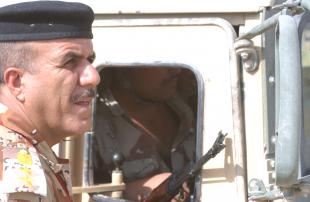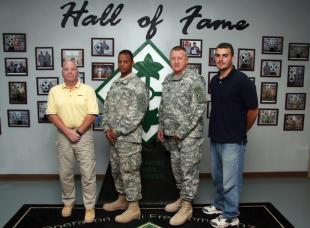Spiegel Interviews US Ambassador to Afghanistan
"We Are Not Going to Evacuate.
We Are Not Going Anywhere."
SPIEGEL: Mr. Ambassador, since January you have managed to escape two separate attacks uninjured. Did those personal experiences change your perception of the security situation?
Neumann: No, this is the fourth war in my diplomatic career. I have had my embassy attacked by a mob, I have lived through assassination threats. But the evaluation of a situation depends on facts, not on emotional responses. It's a difficult situation but it's in much better shape than Iraq.
SPIEGEL: So, there is no heliport in case of an emergency?
Neumann: There are 20,000 American troops in this country. We are not going to evacuate, we are not going anywhere.
SPIEGEL: Before the summer started, you warned that it would be a bloody one. Now it looks like it could become a bloody autumn too. When do you think it will be possible to drive from Kabul to Kandahar again, Afghanistan's most important city in the south?
Neumann: I don't know. It's just one rather large battle next to that highway, where there is a fairly large Taliban presence. The operation requires getting security down to fairly little villages and districts. That's a complicated task. I think no insurgency in the 20th century has been less than a 10 year battle and I do not expect this one to be any better. I'm glad nobody asked us in 1942 what our exit strategy was.
SPIEGEL: Still, Europe was quite surprised that the Taliban was able to reorganize and to show such a strong presence in this country.
Neumann: Sometimes I think that dissatisfaction masquerades as surprise, because the facts were indeed not so terribly surprising. The Bonn process was about building national institutions. At the same time there was very limited governance in the provinces. Donations were slow to arrive. In some places you had contested tribal leaders, there were factions. Then you had the reorganization of the Taliban on the other side of the border. Then you had this development in NATO that troops went to places where it was quiet, not because those places were under government control but because they were under somebody else's control. Then we began the poppy eradication program and that threatened those interests. I think a combination of these factors produced this large offensive of the insurgents.
SPIEGEL: The Taliban were able to reorganize in Pakistan. Who is helping them? Who is training them?
Neumann: What I know is that President Pervez Musharraf has in the last couple of weeks taken a much greater responsibility and he has acknowledged the presence of the Taliban in his country. He acknowledged the need to work against them. These are all very good first steps which all need to be followed by actions.
SPIEGEL: How many insurgents are there? Is there an endless amount of angry young men who go to Jihad and are ready to die?
Neumann: My perception is still that the Taliban are a fairly weak force, despite the increase in violence in Kabul. But there is no comparison to Baghdad at all. There are a lot of places in this country where people are going about their business with only occasionally a bit of violence. That is much more a testimony to Taliban weakness than to government strength. There is also not a lot of ideological support for the Taliban, even if local people are fighting for them.
SPIEGEL: How do you explain that?
Neumann: We learn from interrogation of prisoners that it is more a matter of local grievances, tribal differences, things that can be dealt with -- not necessarily the deep ideological commitment of a suicide bomber.
SPIEGEL: What conclusions do you draw from such information?
Neumann: That we should continue with a double track approach. We should go on with major actions but also move parallel with the task of bringing more security to bear in local areas. And bringing development projects along with it. I think in this way the insurgency can be pushed back but I think it could go on for quite a while.
SPIEGEL: You were talking about 10 years?
Neumann: Easily.
SPIEGEL: At the same level as this summer?
Neumann: Not necessarily. We have a rather critical gap right now. The development of the army, of the police takes time. It will take at least two years for the army, possibly more for the police. And that is the period in which we need to concentrate on our own forces in the theater of war and, of course, on getting money for the Afghan forces and police. This can be done reasonably successfully.
SPIEGEL:What would be the next step?
Neumann: We have to put more guns in the field. Afghans have to believe they can survive in their home at night. You can't win their hearts and minds if they think somebody else will put bullets through them. At the same time we have to keep that from being a means to rebuilding warlords and tribal militias because that works against the government.
SPIEGEL: Who is going to implement this, since -- as you say -- the government is fairly weak?
Neumann: We have to do it and it would be nice if others would help. But it would also be nice if other people would be willing to pay more into the law and order trust fund. We expect Afghan police to take these risks for $70 a month and we don't even have enough money to pay them through the end of the year. I think several countries could put more money into that if they don't want to put their troops in harm's way.
SPIEGEL: Do you think the international community is prepared to put their money up for such a long time?
Neumann: I think they will. There is a clear learning curve. You can see that in the number of forces stationed here, the flexibility of their missions ...
SPIEGEL: That's not totally true. The Germans lack of flexibility meant a refusal to deploy in the more dangerous southern part of the country. The German forces were heavily criticized for that decision...
Part II: "Just because something is difficult, it is not a reason to immediately become a coward".
Category: Afghanistan.




